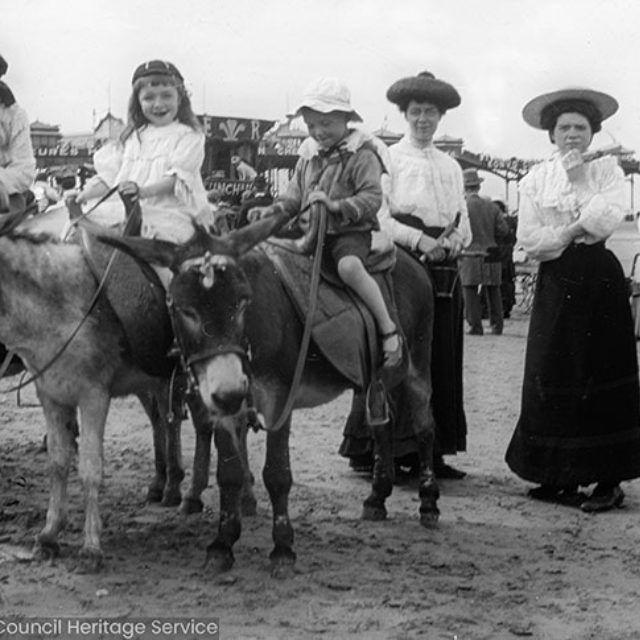By Kathryn Thompson

In the early 1700s sugar imported through Lancaster and Liverpool went into many simple treats which were sold locally. With the dawning of the Industrial Revolution and centralisation of potential consumers, sweet makers needed to invent novelties to catch the customers’ eye - and their pennies!
Ben Bullock, originally a miner from Burnley, had a sweet stall in Dewsbury market. He began experimenting with his own ideas and eventually created sweets with lettering running right through them. The first batch spelled out ‘Whoa Emma’, the title of a popular song of the time. With this success, ‘Bullocks Excelsior Toffee Works’ was founded in 1870 and, in 1887, Ben Bullock came to Blackpool for a holiday. He spotted an opportunity and, on returning home, made the first batch of Blackpool rock and sent it here to tempt the visitors who were coming to our rapidly growing resort in ever greater numbers. It was a success.
Blackpool rock was often sold from stalls on the beach. One vendor was Billy Muggins - clogs and a top hat being notable features of his attire. He would throw out sticks of rock to attract a crowd before starting his sales-patter in earnest.
An ex-employee of Bullocks Toffee Works, George Seniors was probably the first person to make Blackpool rock here in the town in 1902. He founded Star Confectionery Company, where the public could watch rock being made on Bank Hey Street.
The 1920s saw many more confectionery manufacturers established in Blackpool - Waller and Hartley, Newsome’s, who demonstrated rock making on the Pleasure Beach and in 1927 Coronation Rock Company to name but a few.
Rock was being sold from stalls on the beach. Some stalls were regulated by Blackpool Corporation whilst others, below low tide mark, were outside their jurisdiction. Although illegal, hawkers sold rock from baskets in the streets whilst their accomplices warned of the approach of the police.
World War II had a huge impact on the confectionery trade. A sharp rise in the price of sugar, rationing of the amount that the consumer could buy, and a rise in the cost of the greaseproof paper used to wrap the finished sticks created one set of problems. Another problem was that the ‘lumps’ of boiled sugar ready for rolling were much too heavy for females to lift. With the men away in the Armed Forces, smaller boilings the women could handle were prepared. All this drove down production and put the cost up. In 1946, production was at about a third of its pre-war level. Some unscrupulous street traders duped customers with pieces of old walking stick in cardboard tubes whilst the Ministry of Food was ever-vigilant over any illegal supply of sugar into the factories or the selling of the end product without collecting the required coupons.
Queues would form from 5.30am outside rock shops, so keen were the visitors to use the family’s coupons and take home their traditional Blackpool souvenir.

Rationing of sweets went on for fifteen years until 1953. After this date there were some boom years for the Blackpool confectionery industry, with up to fifty factories in the town making traditional rock and inventing new novelties to tempt the nation’s sweet tooth. The 1960s and 70s saw new problems beset the industry. First Purchase Tax and then V.A.T. were imposed. Then followed a world shortage of sugar and, going into the 1980s, ever more complex food production legislation. However, in true Blackpool style, the surviving rock makers have adapted to the modern world. The making of rock is labour intensive and incredibly skilled - a rock roller can take up to ten years to train. Today, orders come from all over the world - for sticks with place names, sports teams, charities, promotional logos and special events.
The range of flavours available is equally varied - chicken tikka, pizza and prosecco are sold alongside the more traditional mint, aniseed and fruit varieties.
The Coronation Rock Company make a presentation stick of rock for the celebrity chosen each year to switch on the illuminations. The same company hold the record for making the world’s biggest stick of rock. It was 4.49 metres long and weighed about the same as four new-born baby elephants - definitely not a ‘little stick of Blackpool rock’.
Would Ben Bullock ever have imagined such a thing?
References and further reading: The Story of Blackpool Rock by Margaret Race

